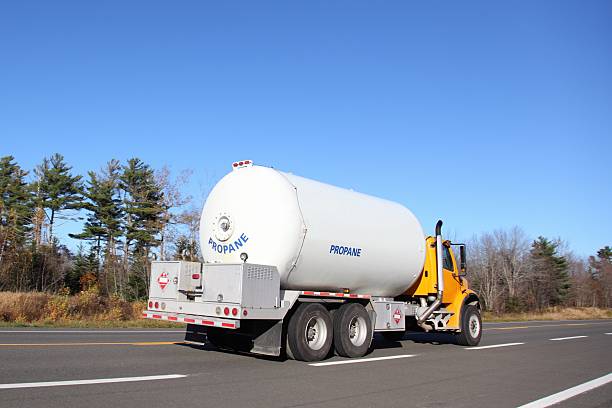Financial Planning for Growing Propane Delivery Businesses

Effective financial planning is essential for propane delivery companies looking to expand and thrive in a competitive market. Let’s explore the critical financial planning and budgeting elements to help your propane business grow sustainably.
1. Setting Clear Financial Goals
Before diving into financial planning, it’s necessary to establish clear, achievable goals for your propane delivery business. Whether expanding your customer base, increasing delivery capacity, or diversifying your services, having defined objectives will guide your financial decisions.
2. Budgeting for Growth
Budgeting is the foundation of sound financial planning. Create a detailed budget that outlines your income, expenses, and investments. Consider fuel costs, equipment maintenance, personnel, and marketing. A well-structured budget will help you allocate resources effectively.
3. Managing Cash Flow
Cash flow management is a top priority for growing propane businesses. Ensure that you have adequate working capital to cover day-to-day expenses, unexpected costs, and investments in expansion. Efficient cash flow management allows you to seize opportunities and weather financial challenges.
4. Investment Planning
As your propane business grows, you’ll likely need to invest in equipment, vehicles, and infrastructure. Plan your investments strategically, considering both short-term and long-term needs. Evaluate financing options like loans or leases to support your growth initiatives.
5. Revenue Diversification
Relying solely on propane sales may limit your growth potential. Explore opportunities for revenue diversification, such as offering related services like equipment maintenance, propane system installations, or energy consulting. Diversification can stabilize income and expand your customer base.
6. Cost Control
Controlling costs is essential for maintaining profitability. Regularly review your expenses and identify areas where you can reduce overhead without compromising service quality. Implement cost-effective practices and negotiate favorable terms with suppliers.
7. Monitoring and Analytics
Utilize financial software and analytics tools to monitor your financial performance. Track key performance indicators (KPIs) like delivery efficiency, customer retention, and revenue growth. Data-driven insights can help you make informed decisions and identify areas for improvement.
8. Risk Management
Growing businesses face various risks, from market fluctuations to regulatory changes. Implement risk management strategies to mitigate potential threats. This may involve diversifying your propane supply sources, securing insurance coverage, or staying informed about industry trends.
9. Tax Planning
Efficient tax planning can significantly impact your bottom line. Work with tax professionals to identify tax-saving opportunities and compliance requirements. Explore available tax credits or incentives related to eco-friendly propane initiatives.
10. Long-Term Sustainability
While rapid growth is appealing, prioritize long-term sustainability. Ensure that your financial planning aligns with your company’s values, such as environmental responsibility and customer satisfaction. Sustainable development fosters a positive reputation and customer loyalty.
11. Regular Review and Adaptation
Financial planning is an ongoing process. Regularly review your budget and financial strategies. Be prepared to adapt to changing market conditions and adjust your plans accordingly.
A Sustainable Path
Successful growth for propane delivery businesses hinges on effective financial planning and budgeting. By setting clear goals, managing cash flow, diversifying revenue streams, and controlling costs, your propane business can navigate the path to expansion while maintaining financial stability and sustainability.














